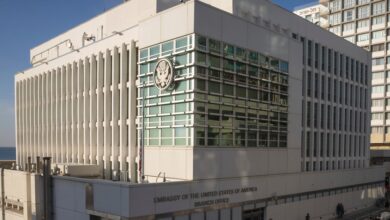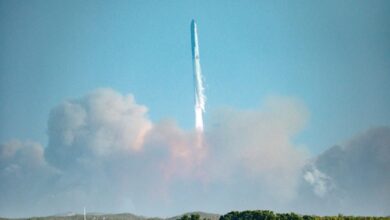Taiwan pledges to buy more American goods as a 32% tariff looms

TAIPEI — Taiwan’s president announced on Tuesday a commitment to increase the purchase of American goods, such as natural gas and oil, in a bid to strengthen ties with the U.S. This move comes as the island faces challenges, including a 32% tariff imposed by the Trump administration.
By increasing imports of U.S. products, including weapons and agricultural goods, Taiwan aims to establish a more balanced trade relationship with the U.S. This move not only enhances energy autonomy and resilience but also fosters closer economic ties between the two nations, as stated by Lai Ching-te, Taiwan’s leader, during a meeting with a U.S. congressional delegation.
Moreover, Lai expressed Taiwan’s willingness to collaborate with the U.S. in efforts to drive industrialization and lead in the field of artificial intelligence.
During the meeting, Rep. Bruce Westerman emphasized the abundance of food and fiber produced in the U.S. and highlighted the country’s eagerness to expand partnerships in this regard.
The deepening trade and economic relations between Taiwan and the U.S. come at a critical time as Taiwan faces escalating pressure from China, which considers the island as part of its territory and has expressed intentions to annex it, even by force if necessary.
Given the U.S.’s legal obligation to support Taiwan’s defense capabilities, both Republican and Democratic leaders view deterring Chinese aggression towards Taiwan as essential for U.S. interests.
Many experts argue that bolstering Taiwan’s defense involves not just arms sales but also forging stronger economic and trade partnerships to reduce Taiwan’s vulnerability to economic coercion from China.
Taiwan has become a key destination for U.S. investments, with Taiwan’s semiconductor giant TSMC committing to invest $165 billion in building chip manufacturing facilities in Arizona. Additionally, Taiwan ranks as the 7th largest market for U.S. agricultural exports, according to Lai.
Despite these positive developments, the U.S. currently maintains a trade deficit with Taiwan, totaling $116.3 billion in 2024, as reported by the Office of the U.S. Trade Representative.
The proposed 32% tariff by President Trump, part of his broader tariff agenda, remains on hold with a 10% baseline duty in place. Earlier this month, Lai downplayed the trade tensions between the two nations as “frictions between friends.”
The congressional delegation’s visit to Taipei is part of their broader tour of the Indo-Pacific region, scheduled to continue until Thursday, according to the American Institute in Taiwan, the de facto U.S. diplomatic mission on the island.





